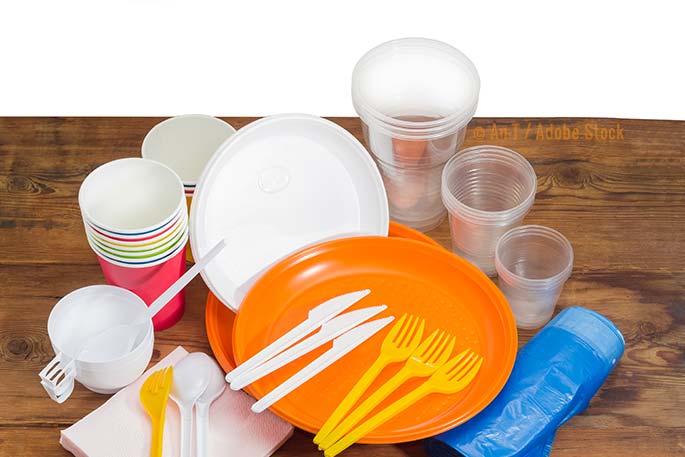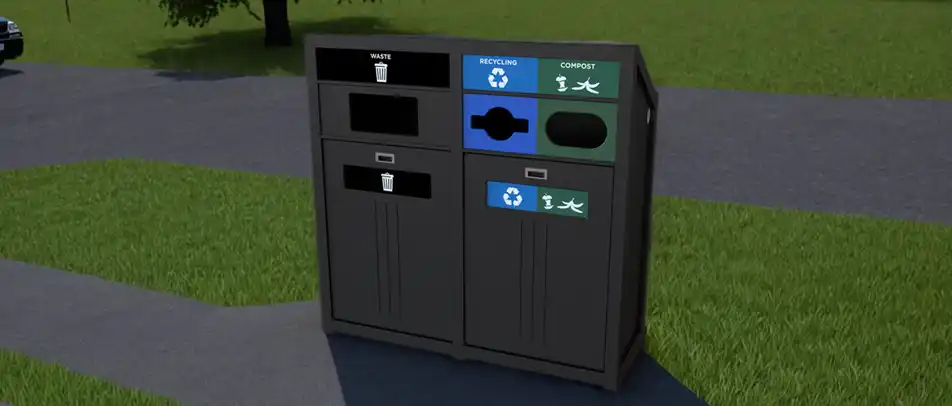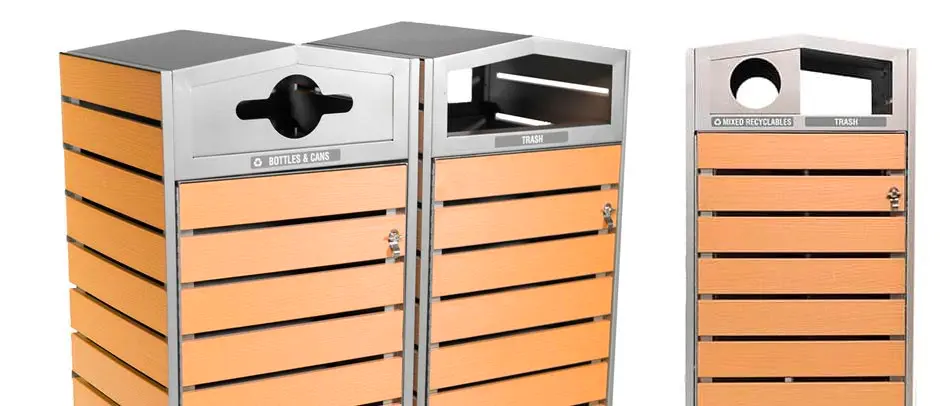
The beach stirs up many emotions for a lot of us – the sun, the sand, the sea – childhood memories unfold before our eyes at the mere mention of it. Unfortunately, plastic waste is changing that image for a lot of us. I’m sure you’ve seen it – the thousands of photographs and videos showing a devastating sea.
Tide pools replaced by discarded coffee cups and laundry detergent bottles.
Crashing waves disrupted by thousands of unwanted water bottles, candy wrappers, and deflated “Happy Birthday” balloons.
Sea turtles washed up with single-use plastics wrapped around their necks. Beached whales with bellies full of plastic grocery bags.
“At the current rate, it’s predicted that our oceans will contain more plastics than fish by 2050.” – Ellen MacArthur Foundation.
So the question is how do we help? How can we reduce our single-use plastics that are wreaking havoc on our planet? Often times humans overthink the possibilities when in reality, some solutions are quite simple. Here are 10 easy, effective ways you can reduce your waste and help our planet thrive.
#1 Use What You Have, Recycle What You Have
Sometimes we forget what’s right under our noses. Start here. The “zero-waste” movement is inspiring and noteworthy. But remember, throwing away your half used shampoo bottle for an environmentally friendly alternative is more wasteful than using it first! Use what you have, and always rinse and recycle what you can. When it’s time for something new, then find your zero-waste alternative to replace it.
#2 Replace Your Plastic Water Bottle
Plastic water bottles are the first and easiest transition to reduce your waste. They are a common household purchase and most families are used to their convenient, already filtered, compact bottle. Between the bottle, the wrapper, the lid, and the casing – you could replace an immense amount of your household waste in one easy switch. Pick up a BPA-free or stainless steel water bottle. Fill it every day before leaving the house. Recycle any plastic water bottle you must purchase, or try and find it in a glass bottle.
#3 Bamboo Toothbrush
Did you know that every single piece of plastic ever made is still around today? That’s right, your childhood toothbrush with your favorite cartoon-characters is still somewhere. Bamboo is a fantastic alternative. There are many different compostable options for cleaning your teeth. Be sure to check if the bristles are compostable as well. Often times the fibers need to be removed prior to going in the compost bin. If composting isn’t available to you, try looking for a toothbrush made of recycled material.
#4 Reusable Coffee Mug
Most disposable coffee mugs have something along the lines of “made of 100% post-consumer materials” stamped on them. This makes us feel better as we guzzle our caffeine, and ultimately, throw away the cup. Why? Because while the outside paper is technically, recyclable, the inner-coating called “polyethylene” prohibits it from being recyclable. This chemical prevents the mug from breaking down from the hot liquids but also is a form of plastic. Your local coffee shop most likely sells reusable coffee mugs, pick one up! They often give discounts when you bring your own, too!
#5 Ditch Plastic Grocery Bags
Another easy alternative is to replace your plastic grocery bags. These bags are often mistaken for jellyfish when a sea turtle or other marine animals are searching for dinner. They can become entangled on shorebirds and litter our sea. Take any bag you have and use it. Most of us have durable bags around the house, we often just forget to use them. Try placing all of your acquired reusable shopping bags in the trunk of your car. When you grocery shop, they will be available to you. Once you unload your groceries, place them back in the trunk of your car. If you need more bags, most grocery stores & markets have reusable bags available for not much more than $1.
#6 Straws, Straws, Straws
Plastic straws are everywhere. They’re in everyone coffee shop, bar, restaurant, and venue you can think of. They’re convenient, lightweight, and cheap. They’re also finding their ways into sea turtles noses. Replace your straw with a metal, bamboo, or paper straw. Remember to bring them with you, and say “no thank you” to single-use plastic. There are many of us with arthritis or disabilities who need to use plastic straws. There are reusable bendable plastic straws as well that can be washed. Or, try and recycle what you do use!
#7 Beauty Products
Beauty products are lavishly packaged. They market consumers with pretty designs and beautiful wrapping. What do we do with that desirable package? At some point or another, we throw it away. Instead of falling for the outward appearance, look to what’s going onto your skin and onto our planet. Look for “naked” products; i.e. solid shampoos, conditioners, and body soap. Look for DIY recipes for toothpaste, deodorant, and lotion. For every product you use in the bathroom, there is an alternative.
#8 Bring Your Own Utensils and Containers
Food sometimes needs to be fast, cheap, and convenient. What comes with all of that? Plastic. Remember to bring your own bamboo utensils and stainless steel to-go containers. This way, you can enjoy a quick meal and say no thank you to single-use forks and knives. Keep this in your car so you will always remember to use it!
#9 Menstrual Products
For those who have a monthly menstrual cycle, you know it can be difficult to do zero-waste. Luckily, there are options for this as well. There are menstrual cups that act as a tampon. These cups last up to 10 years with proper use and care! There can be a learning curve from traditional tampons and pads, but the environment and your wallet will ultimately thank you. If you prefer different protection, there are reusable pads available through many menstrual cup brands.
#10 Buy in Bulk
One last tip is to buy in bulk when you can. This can be a learned behavior, as it takes time to scout out bulk grocery stores and how to package it all. Try finding foods wrapped in paper to start. Eventually, you’ll feel comfortable weighing your own food in containers brought from home. Pasta, cereals, grains, nuts, fruits, meat, and more are easy grocery items to purchase zero waste. Always remember, it’s progress, not perfection, and every little bit you do will help sustain us on this planet a little bit longer. Do your part, take shorter showers, turn off lights and fans, carpool, and plant a garden. The Earth and the Sea will thank you!




































































































































 Three Ways to Engage Teams and Clients to Maximize Your Recycling Program Engagement
Three Ways to Engage Teams and Clients to Maximize Your Recycling Program Engagement  How to Integrate Accessibility Into Your Sustainability Planning
How to Integrate Accessibility Into Your Sustainability Planning  Why Park Benches Can Promote Workplace Well-Being
Why Park Benches Can Promote Workplace Well-Being 
